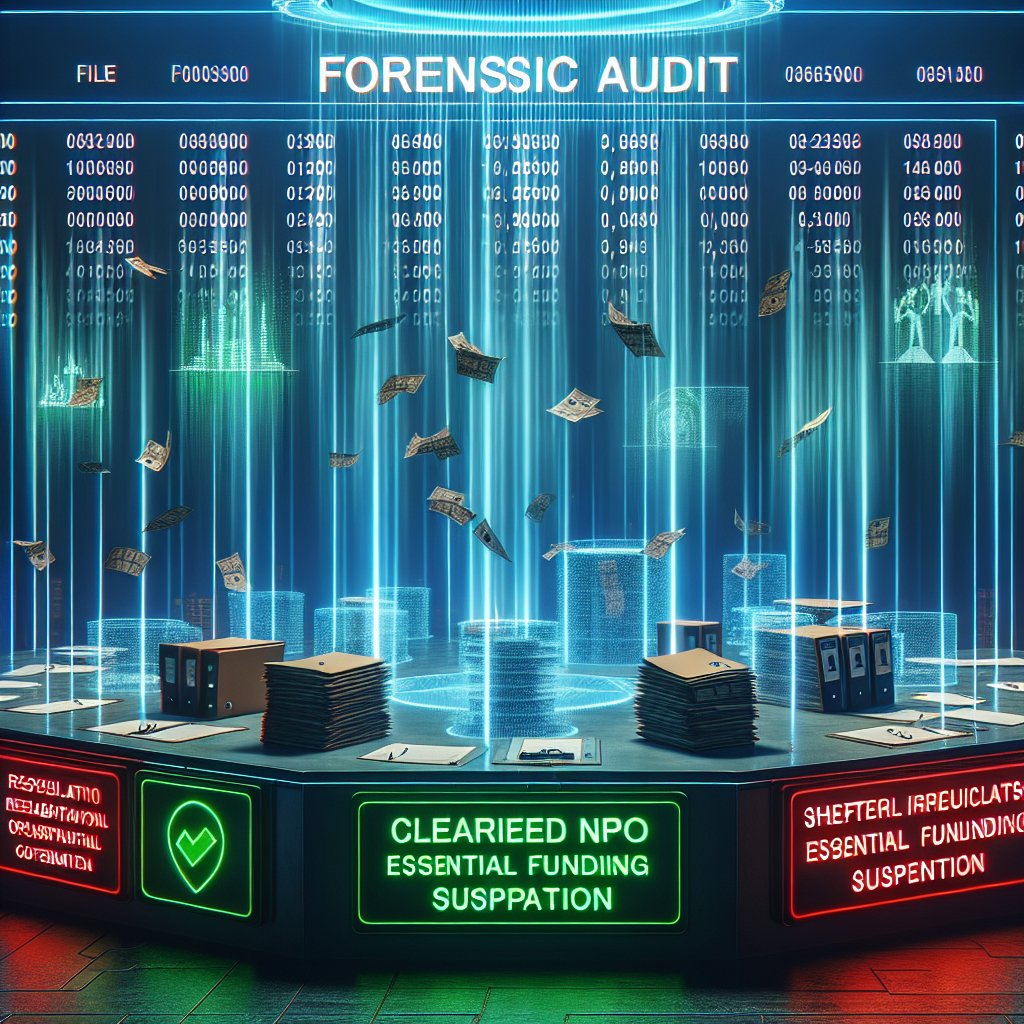Image created by AI
Gauteng Care Organisations Exonerated Following Fiscal Probe
The Gauteng non-profit sector breathes a collective sigh of relief following a forensic audit initiated by the provincial Department of Social Development. The Gauteng Premier Panyaza Lesufi's directive, spearheaded by former social development MEC Mbali Hlophe, aimed to purge the sector of fraud and corruption but resulted in severe funding disruptions for numerous organisations.
Given the critical services provided by NPOs, the audit's fallout left many beneficiaries vulnerable. The audit, a part of rigorous oversight over the R1.9-billion yearly subsidy allocated to over 700 NPOs, highlighted irregularities necessitating immediate action, including the suspension of subsidies.
With the comprehensive audit report now published, the findings indicate that the vast majority of the implicated NPOs have been cleared, leading to resumption of the essential funding. Additionally, 34 entities successfully contested the preliminary findings, allowing them to restart their critical contributions to society, spanning drug rehabilitation to shelters for abused women.
The remediation process has not been as swift for all, however, as six organisations, including the substantial grant receivers Daracorp and Beauty Hub, await the final verdict on their fates. Notably, organisations such as Kitso Lesedi Community Development challenge the department's findings to reinstate their funding.
Amidst the churn, two organisations face an ongoing embargo on funding—namely, Life Healthcare's rehab facility and Tembisa Society for the Care and Welfare of the Aged. Questions around the integrity of operations have led to a series of investigations by the national Hawks investigative unit, engulfing eight NPOs in a detailed probe.
Despite these developments, crucial details remain cloaked in uncertainty: the particulars of 14 suspended officials, the true impact of the audit on the NPOs' sustainability, and the integrity of the fund allocation processes. Even with the adjudication bottlenecks, the non-profit sector is slowly returning to a semblance of normalcy, albeit with healed but fragile ties to the department.
In the throes of these upheavals, organisational leaders such as Derick Matthews of Freedom Recovery Centre and Mpule Lenyehelo of A Re Ageng have expressed a mix of relief and disgruntlement. The undermining allegations have ultimately been dispelled, but the damage to mutual trust and the continuity of service provision has been significant.
MES, caught in bureaucratic snags despite not being formally implicated, has also attained resolution after challenging apparent discrepancies directly with audit firm FSG Africa. The department's slow response has underpinned the need for transparency and efficient communication channels.
Amidst the turmoil, voices like that of Lisa Vetten, chair of the Gauteng Care Crisis Committee, remind us of the sector's intrinsic value and the glaring need for scrutiny and accountability. While the current exoneration is a welcome chapter in resolving this crisis, the overarching narrative demands ongoing vigilance to ensure the promises of accountability translate into systemic improvements for one of society's most pivotal sectors.










